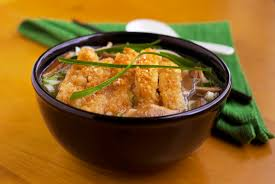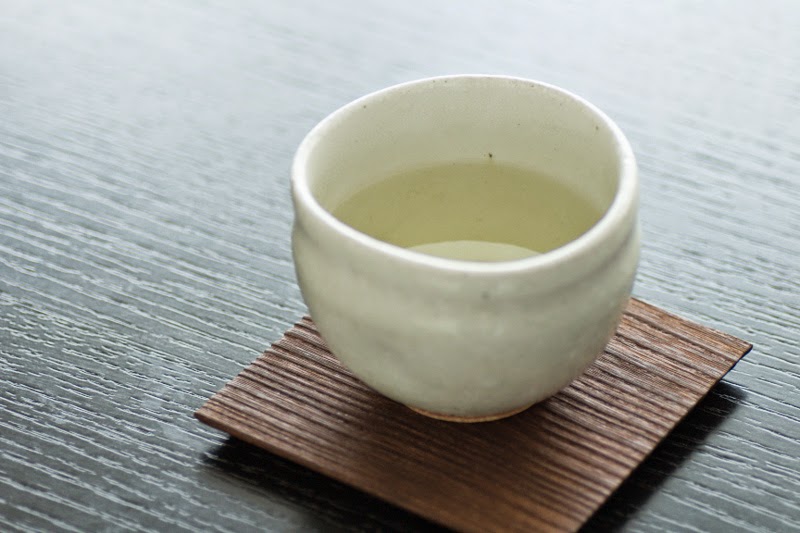I love foods from various plants, beasts, and lands. There are just a few that I avoid, such as the jelly donut. Jelly is a condiment, to be used sparingly, to enhance or complement other flavors. Condiments are lovely, but I don’t want my mouth full of mayonnaise, tamarind chutney, or wasabi. Neither do I want a mouthful of jelly.
Beyond being force-fed donuts, the only time I do not enjoy a good nosh is when I am unwell. I do know people who eat only because they must. They have a short list of tolerable foods. They have specific times of the day when they have their meals, an alarm to remind them that their feeding chore must be accomplished.
My concern is that they are missing out on so much more than scrumptious vittles. My experience is that so much of joie de vivre is connected to food.
When discussing the content for this article with a friend who shares my passion, she was reminded of a scene in the movie “Green Card” when the female vegetarian character describes the male lover of all foods: “He has passion. He eats life.” Yes, she was referencing his habit of eating animal meat, but her point was his enjoyment of both his meals and his time here on earth.
In the couple of cooking classes I’ve taken, the chefs were not only great talents in the kitchen, but passionate story tellers, of mostly food related tales. We learned at these gatherings, but also connected with new friends in the kitchen and around the table, laughing and sharing.
Varying the ethnic origin of foods yields not only diversity in flavor, but in culture, and this adds to food emotion for me. I love to travel, to meet people, and eating is an important part of connecting with a place and those that live in it.
I hope the following vignettes make you hungry for a fine meal and for life. If you do only eat to fuel your body, may this broaden the scope of your 1 p.m. plate to a bento box.
Food is Culture
 I visited a friend who was teaching English in Japan. She met me at Fukuoka airport. When we saw each other, we ran and embraced, laughing, hugging, and rocking side to side.
I visited a friend who was teaching English in Japan. She met me at Fukuoka airport. When we saw each other, we ran and embraced, laughing, hugging, and rocking side to side.
We managed to halt the airport bustle. My friend said, “Don’t worry, they just think we’re crazy.” She later explained that even if a Japanese mother and son see each other after being apart for twenty years, when they finally reunite, they bow to each other. I’m sure we were dinner conversation.
We had a train ride ahead of us, so we stopped at an airport noodle shop. After being on four flights in the last twenty-four hours, a bowl of steaming hot soup was just what my sinuses needed. It only took a few sips for my nose to start running. I am a Broadway style sneezer. I’ve stopped the hearts of many unsuspecting friends and family members. My nose-blowing, however, is quite demure. I had not even left the airport, and clearly, my small phooph into the napkin guaranteed that I insulted a nation. Twice. Even my friend had lived there long enough to stop eating and stare at me in disbelief. She shook it off and explained. You may belch as loudly as you want at the table, and it is seen as a compliment to the chef. Blow your nose, and you have committed a filthy faux pas.
Thankfully, I knew how to use chop sticks, and the Japanese are a fantastically gracious people, so my further transgressions were either ignored or immediately forgiven. However, there was one other barely circumvented circumstance.
We visited many tiny villages within the Nagasaki prefecture, and westerners were a rare site. We were honored guests everywhere we went. Responsibility comes along with such treatment. We once stopped at a small restaurant in our travels. We sat down, and were immediately presented with a bowl of shells. Such a gesture had become typical, and the translation was, “We are honored to have you in our midst, please enjoy our specialty as a gift from us.” By this point in the trip, I had eaten a great deal of sushi and sashimi, so my raw fish palette was expanding happily.
We bowed our thanks for the treat, each retrieved a shell from the bowl, and as I pulled the treasure from inside, a trail of slime came out with the obviously uncooked snail.
I turned pale, looked at my friend and asked, “Is it more insulting for me to not eat this, or to vomit on the table?”
“Give me that,” she said, and did a find job of eating most of the slimy creatures with no ill effect. My admiration increased, and her friendship became even more treasured. Food is bonding.
- Jelly donuts
- Raw sea snails
Food is Welcoming
Back to my first day in Japan. My money-saving four flights in twenty-four hours, followed by the excitement of being in Japan, and reuniting with a dear friend, were exhausting. My friend knew not to bother taking off work the next day, and I wondered what I would do while she was away. I didn’t wake up until she returned home.
She was not surprised, and arrived home with fresh mochi for my afternoon breakfast. She and I had discovered our love for the Japanese pastries in high school, so she knew I would be excited to enjoy the chewy, sweet, bean and seed paste filled treats.
The mochi were amazing, and the thought behind them was even sweeter.
Food is Amusing

I was honored to attend a celebratory feast while in Japan. I was assured that I should sit seiza only as long as I was comfortable, and could then fold my legs in front of me, western-style, without insulting my hosts. At a Japanese feast table, it is each guest’s responsibility to serve his neighbor. You do not help yourself to food or drink. Your plate and cup should be full when you leave, showing that you were provided more than enough. My friend was across the table from me, so I was flanked by two wonderful people, to whom I could not speak for even the simplest Japanese words were beyond me. However, we smiled and laughed together through the entire meal. I’m sure my great concern for their plates and cups was amusing, and I, of course, wanted for nothing. One young man, who spoke a bit of English, came around the long table to visit me. He presented me with a shrimp, slightly filleted, with two peppercorns stuck in it, resembling quasi-googly eyes.
“Shrimp that look like carp,” he said with great excitement and laughter, “funny Japanese joke!”
The willingness of these fine people to include me, along with their thoughtfulness regarding my comfort, and desire for me to enjoy myself endeared an entire culture to me. So much of that was spoken through, or surrounded by food.
Food is Caring

We were at what might be considered a pub, or cafe, but it was really neither. We had met up with some other English teachers. It was nice to take part in conversation without translation. We were having a lovely time, singing karaoke, and chatting, but I was losing energy due to a headache. This caused great, yet quiet concern in the Japanese contingent. My predicament was whispered to the owner, or chef, who disappeared into the back. He returned with a cup, that was presented to me. I was told it was tea good for a headache. It was clear and salty, with bits of what I think were chopped rice floating in it. It seemed more like soup, but it was comforting, and it worked.
Food is Friendly

One of the English teachers was from the Land Down Under. Yes, he just smiled and gave me a Vegemite sandwich. With Sting singing clearly in my mind, I took a bite.
I remember laughter, so I don’t think I did a great job of masking my reaction. It tasted like vegetable bouillon base spread on bread.
Nonetheless, his willingness to share his treasured snack with me, even if it was for benefit of everyone in the room, made me happy. Clearly, the other non-Aussies had had their moment with the sandwich, and I felt privileged to have experienced this rite of passage.
- Jelly donuts
- Raw sea snails
- Vegemite
Food sustains life and so much more. For instance, my writing. I could go on. And on. Food is a muse with whom I can spend some happy, creative time. If you enjoy food, and these stories bring to mind a fond memory, please share through a comment. If you are a need-only-feeder, I hope you saved this for mealtime, and it gave you something to read to get you through the monotony of your task.







